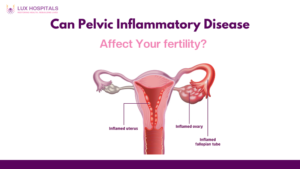Thyroidectomy: When Is Surgery Needed and What to Expect?
Thyroidectomy surgery is a medical procedure that involves the removal of all or part of the thyroid gland. The thyroid plays a crucial role in regulating metabolism, energy levels, and overall bodily functions. When thyroid disorders become severe or unmanageable through medication, surgery may be necessary. In this blog, we will explore when thyroidectomy is needed, the types of procedures available, the steps involved, possible complications, and what to expect post-surgery.
When Is Thyroidectomy Surgery Needed?
Thyroidectomy surgery is recommended for several medical conditions, including:
1. Thyroid Cancer
If a patient is diagnosed with thyroid cancer, surgery is often the primary treatment to remove the cancerous thyroid tissue and prevent its spread.
2. Goiter (Enlarged Thyroid)
A goiter can cause breathing and swallowing difficulties. If it becomes excessively large, thyroidectomy surgery is often the best option.
3. Hyperthyroidism (Overactive Thyroid)
In cases where hyperthyroidism is severe and resistant to medications or radioactive iodine therapy, thyroidectomy surgery may be advised.
4. Thyroid Nodules
Large or suspicious thyroid nodules that cannot be diagnosed accurately through biopsy may require removal to rule out malignancy.
5. Graves’ Disease
This autoimmune disorder leads to excessive thyroid hormone production, and in severe cases, thyroidectomy surgery is performed when other treatments fail.
Types of Thyroidectomy
There are different thyroidectomy types based on the extent of gland removal:
- Total Thyroidectomy – The entire thyroid gland is removed. It is commonly performed for thyroid cancer and severe goiters.
- Partial Thyroidectomy (Lobectomy) – Only a portion of the thyroid is removed, usually when a nodule or localized issue affects one side.
- Subtotal Thyroidectomy – A significant part of the thyroid is removed while leaving a small portion to maintain some thyroid function.
- Completion Thyroidectomy – A second surgery to remove the remaining thyroid tissue when a prior partial thyroidectomy was performed.
Thyroidectomy Procedure: What to Expect?
Total Thyroidectomy Procedure Steps
- Pre-Surgical Evaluation
- Blood tests and imaging scans assess thyroid function and determine the need for surgery.
- Patients may be advised to stop certain medications before surgery.
- Anesthesia Administration
- Thyroidectomy surgery is performed under general anesthesia, ensuring the patient is asleep and pain-free during the procedure.
- Incision and Gland Removal
- A small incision is made at the base of the neck.
- The surgeon carefully removes the affected part or the entire thyroid gland while preserving nearby nerves and the parathyroid glands.
- Wound Closure
- The incision is closed with sutures, and in some cases, a drain may be placed to prevent fluid buildup.
- Post-Surgical Recovery
- Patients are monitored for a few hours or overnight, depending on the complexity of the surgery.
- Pain and swelling around the neck are common post-surgery symptoms.
Thyroidectomy Complications and Side Effects
Thyroidectomy surgery carries some risk, despite its general safety. Thyroidectomy consequences could include the following:
1. Bleeding and Infection
- As with any surgical procedure, there is a risk of post-operative bleeding and infection.
2. Hoarseness or Voice Changes
- Damage to the recurrent laryngeal nerve can result in temporary or permanent voice changes.
3. Hypocalcemia (Low Calcium Levels)
- Temporary or persistent hypocalcemia may result from an impact on the parathyroid glands, which regulate calcium.
4. Breathing Difficulties
- In rare cases, swelling around the airway may cause breathing difficulties immediately after surgery.
5. Thyroid Hormone Deficiency
- Patients who undergo a total thyroidectomy will need lifelong thyroid hormone replacement therapy.
Recovery and Post-Surgery Care
Thyroidectomy recovery varies according to the type of procedure and personal health variables. What to expect
1. Hospital Stay and Immediate Care
- Some patients are discharged on the same day, while others may stay overnight for observation.
2. Managing Pain and Swelling
- Mild to moderate neck pain and swelling are common; pain medications can help manage discomfort.
3. Thyroid Hormone Replacement
- Thyroid hormone supplements must be taken daily by patients who have had their entire thyroid gland removed in order to preserve a regular metabolism and energy levels.
4. Follow-Up Appointments
- Regular endocrinologist checkups guarantee appropriate thyroid hormone levels and track any issues.
5. Diet and Activity
- Soft foods may be recommended initially.
- Strenuous activities should be avoided for a few weeks to allow proper healing.
Conclusion
Thyroidectomy surgery is a severe procedure for a number of thyroid ailments, such as cancer, hyperthyroidism, and goiters. Knowing what the surgery is all about, the risks involved, and post-surgery expectations will enable patients to make good choices for themselves. Thyroidectomy problems are rare, but a speedy recovery is guaranteed with proper post-operative care. To find out if thyroidectomy surgery is right for you, see a healthcare professional if you have thyroid issues.
How long does it take to recover from thyroidectomy surgery?
Recovery time varies, but most patients resume normal activities within 1-2 weeks. Full recovery may take a few months.
Will I need to take medication after thyroidectomy?
Yes, if your entire thyroid is removed, you will need lifelong thyroid hormone replacement therapy.
Is thyroidectomy a high-risk surgery?
While thyroidectomy surgery is generally safe, complications such as bleeding, infection, or voice changes can occur.
Can I speak normally after thyroidectomy?
Most patients regain normal speech quickly, but temporary hoarseness or voice changes may occur in some cases.
Will thyroidectomy affect my weight?
Without proper hormone replacement therapy, metabolism changes can lead to weight gain or loss. Regular monitoring helps maintain a stable weight.
Can thyroidectomy surgery be done as an outpatient procedure?
In some cases, thyroidectomy surgery is performed as an outpatient procedure, but an overnight stay is common for observation.
What are the signs of complications after thyroidectomy?
Symptoms like difficulty breathing, severe pain, excessive swelling, or tingling in the hands and feet should be reported to a doctor immediately.




















